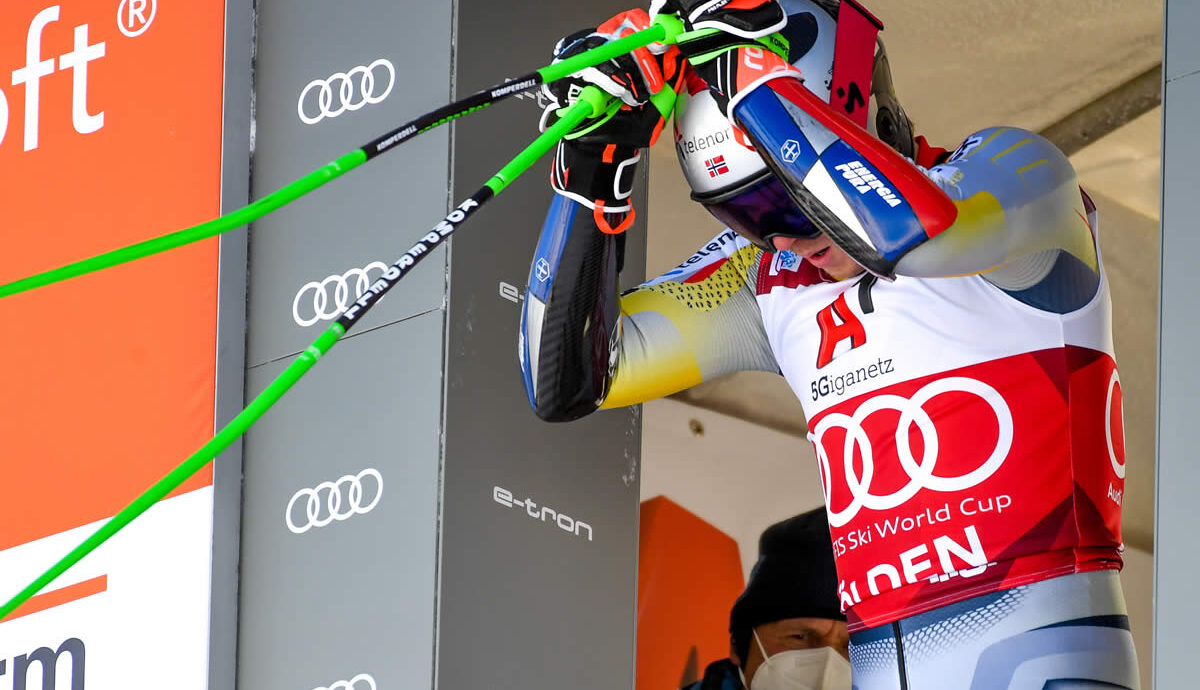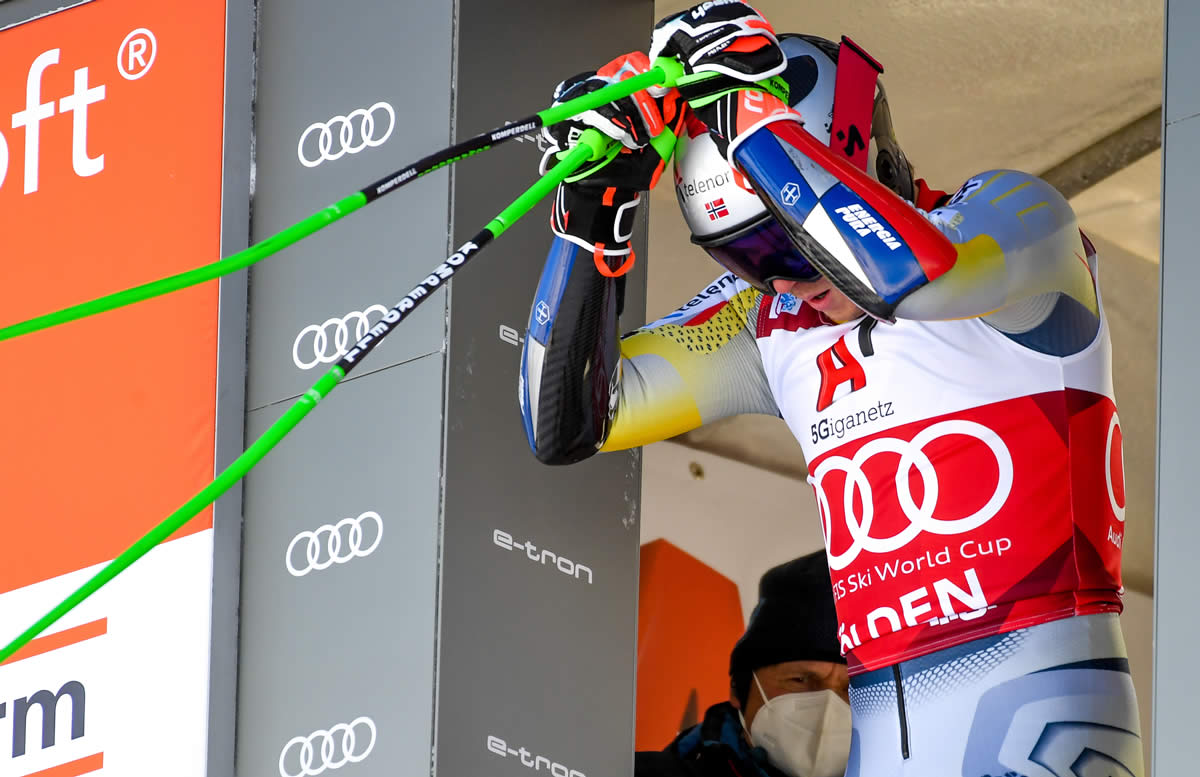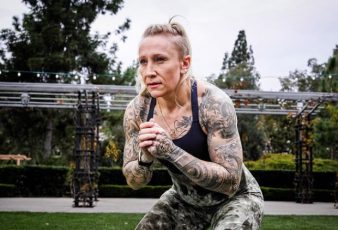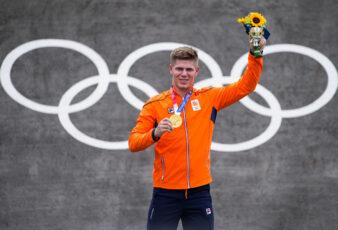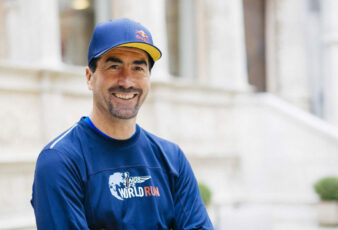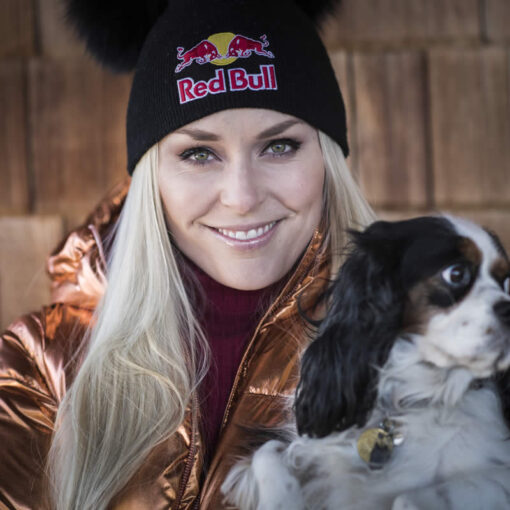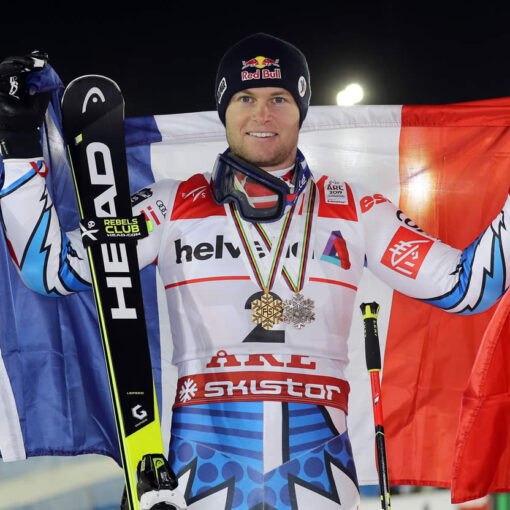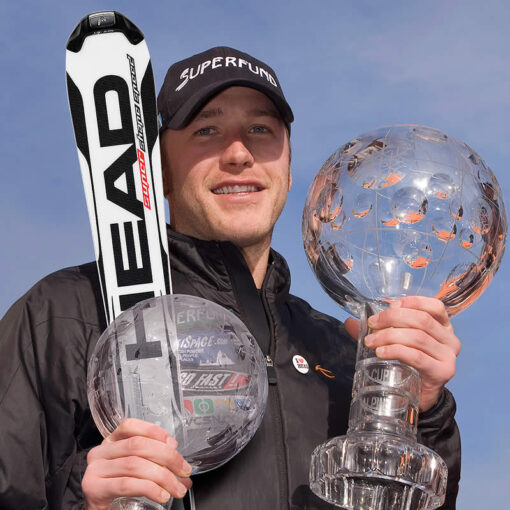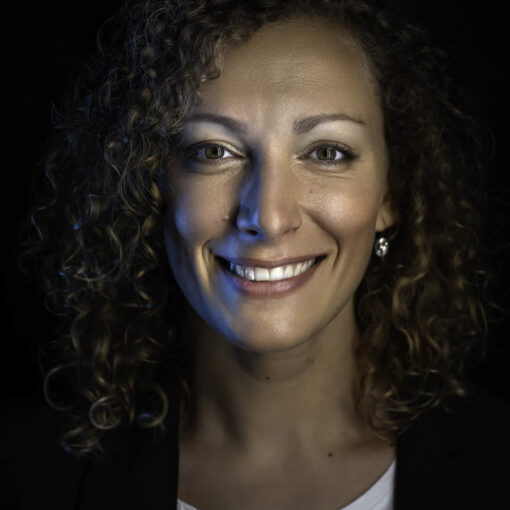As a child I wasn’t exactly a model student.
I didn’t have an aptitude for studying and spent most of my time resting my chin in my hand feeling bored.
I used to stare through the window and count the hours before the weekend.
In fact, from Friday to Sunday I used to go skiing, all of 48 hours spent going up and down the slopes. And this was the one thing that gave meaning to the rest of my week.
On Sunday nights, I was always sad because it seemed that the next time I could go skiing was a long way away.
My parents have always had a deep passion for sport, and they passed it on to me and my brother Magnus.
They never wanted to bring us up as little champions, but rather as good people.
They wanted to fill our afternoons with lots of activities so that we wouldn’t have time to get into trouble.
Our family’s savings were never used for exotic holidays or long journeys. They were used to allow Magnus and me to take part in many different activities throughout the year.
And since I was a high-spirited child, doing different sports was the most beautiful thing in the world.
Biking, running, skiing, hockey, even motocross, a sport I discovered when I was five or six years old and that I haven’t given up yet, even though now I only do it in my spare time, being very careful not to take unnecessary risks.
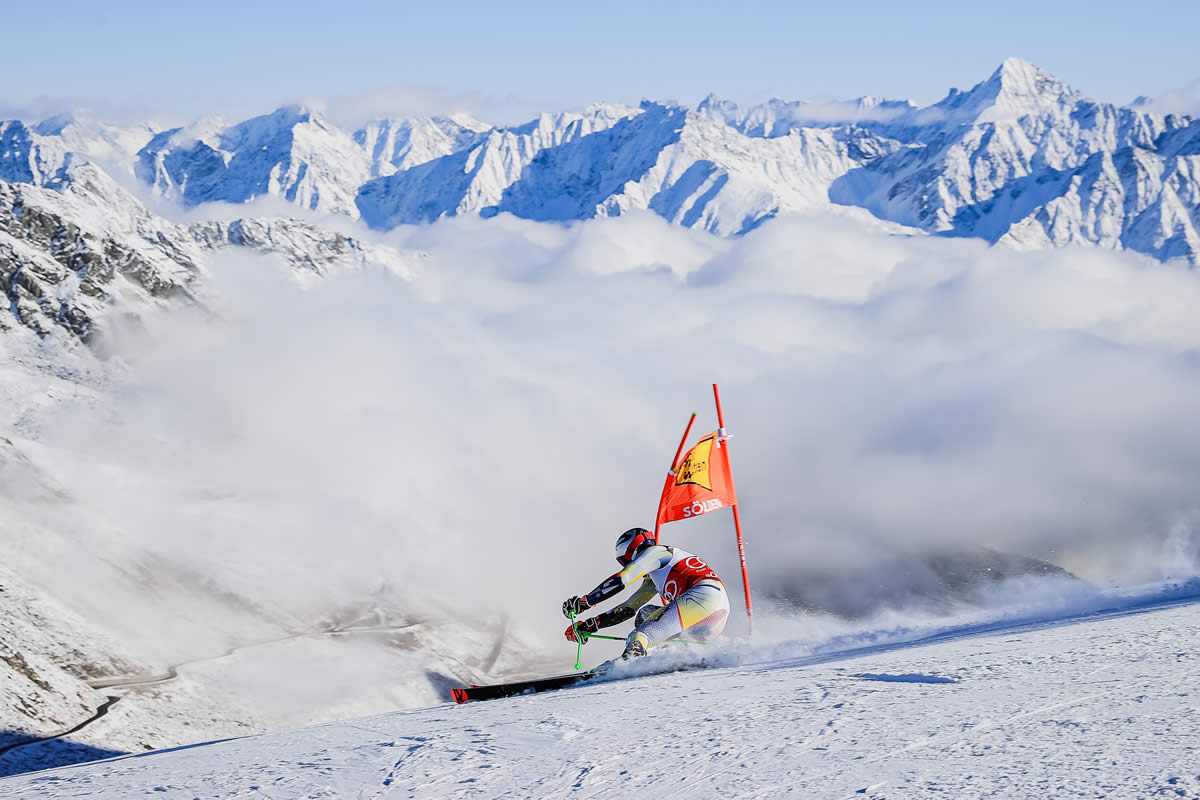
Then, growing up, I became so good at skiing that I no longer had to worry about being sad on Sunday nights, because all my days became Sundays.
I used to spend entire weeks in the snow, mornings and afternoons, building my future pro career step by step.
As soon as I became old enough to decide what was worth dreaming about, being a ski racer was at the top of my list.
More than that, it was the only option.
I wanted to be one of the best.
If I look back on my past, everything could seem predictable, almost inevitable.
The universe, though, wasn’t forced to set a direction of travel for me, it’s just easier to believe in fate when something gives an exact meaning to your life.
I was a precocious talent. I had already clinched many victories in the youth categories and when I found myself competing against the elite athletes, it didn’t feel any different.
At least not on the course.
In general, whether it’s the Olympics, the World Cup or the Europa Cup, for me it’s no different.
When I think about the race, I see a mountain.
I see the ski lift.
I see the start gate, the lines and the clock.
To win, I’ve always adopted the same approach: do what you have to do, don’t make mistakes and cross the finish line.
That’s all that matters.
For better or for worse.
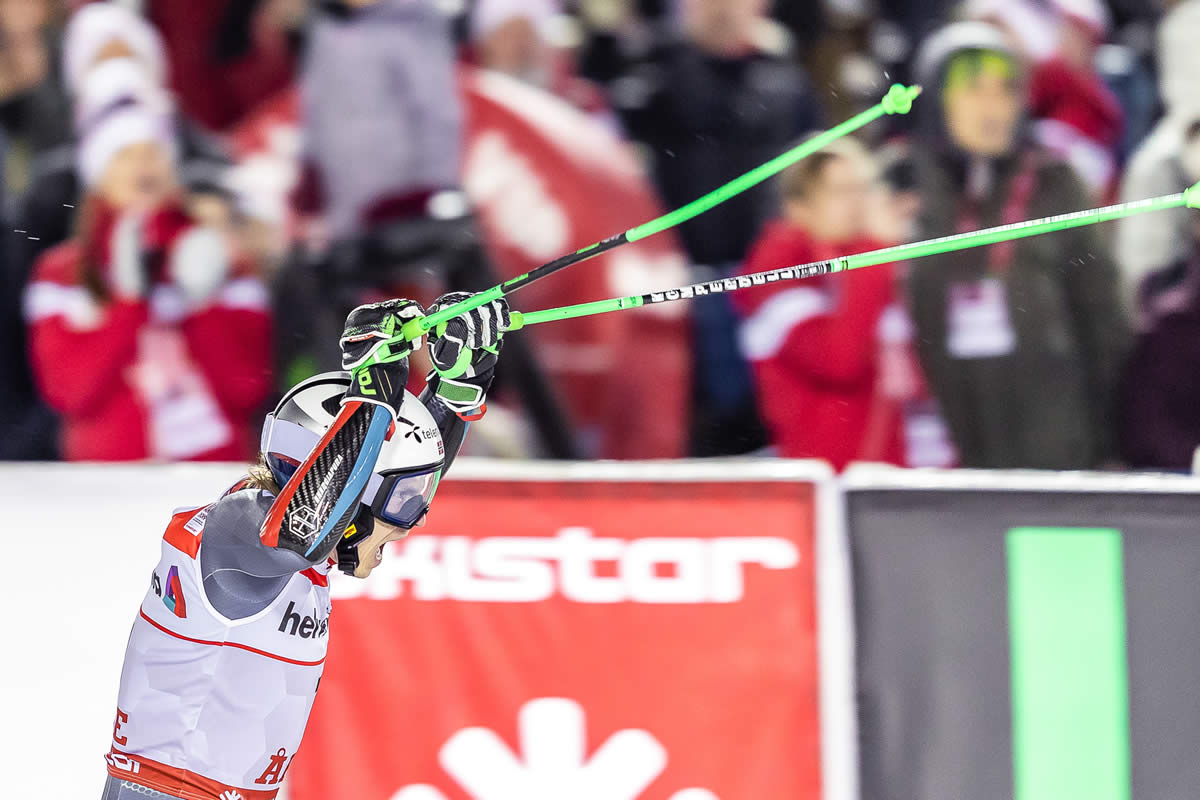
You never want to ease off, you never want to get to the race drained, you never want to let the pressure get to you and cause you to make mistakes.
You need, however, to know how to sail in uncharted waters and pick your way through the ups and downs of the season, because if you want to be the best of the best, you must always finish on the podium, even when you’re not in tip-top shape.
Every day must be a good day, no matter what.
This process of focusing on every competition in the same way really helps me.
It makes things simple, even if they aren’t simple at all.
When you start thinking about everything other than the competition, the things that make one weekend different from the next, you lose your focus and forget about practical things.
But it’s precisely the practical things that make the difference between winning or losing.
A race is just a race, and snow is always snow.
Nothing more. Nothing less.
When I opted for this sport, I didn’t imagine that it would be like this, I didn’t think that everything other than skiing would be so complicated.
I never dreamed of being famous.
But it’s when you cross the finish line that you understand the difference between being on a big stage and in a small theatre: the media circus follows you everywhere you compete, almost becoming part of your daily lives.
Sometimes the media act like a supporter, sometimes they’re just a burden, sometimes something between the two.
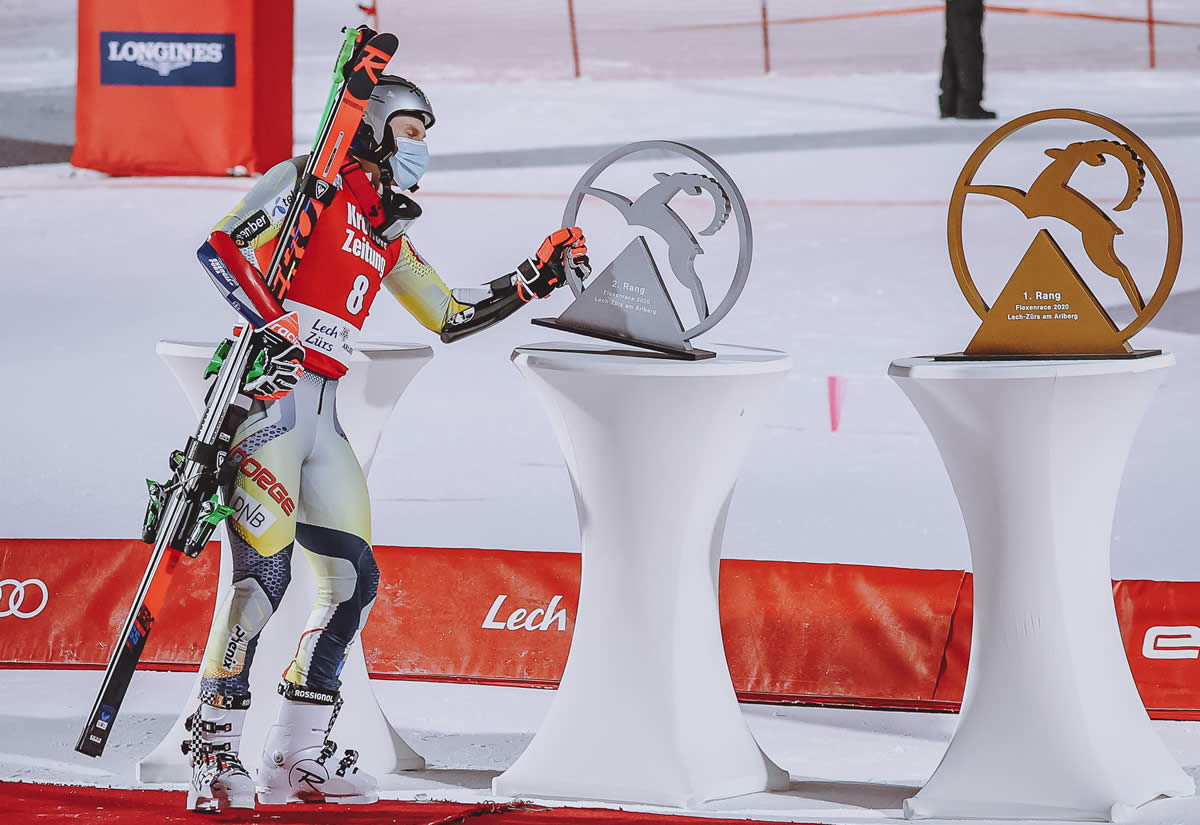
When I won my first Olympic medal, I was only 19 years old and, although I already knew how to ski head-to-head with the best, I still had no idea of how I should behave in front of the mic.
Here’s the truth: at the highest level, sport is entertainment.
And if you do, or say, something wrong, you end up entertaining the audience more than you wanted to, but not in the way you had intended.
Talking about yourself opens a window into your private life and drains your energy. It’s like a verbal agreement that is concluded between you and those who tell the general public about you.
You entrust them with fragments of your thoughts, your feelings, and in return, they help the listeners and readers to be in tune with your story, to understand your background.
Once I’d made the elite national team, for example, I found myself in a new world and I had a lot to learn.
In the technical disciplines there was no one who managed to finish in the top 30 in the World Cup. But I was able to get Norway back on the podium, after ten long years, and lead it to victory.
For the speed racers everything was different. They were, and still are, a very strong, dynamic and complete team, where everyone supports each other.
Where everyone looks out for each other.
Aksel Svindal, our veteran, was a great help to me in figuring out a way to cope with life beyond the race track, and the most important thing I learned is that I must always try to be honest.
With myself and with others.
Because the best feeling of all is to be able to do things my own way, and because skiing is my life, nothing can make me feel sad on Sunday nights.
Henrik Kristoffersen / Contributor


